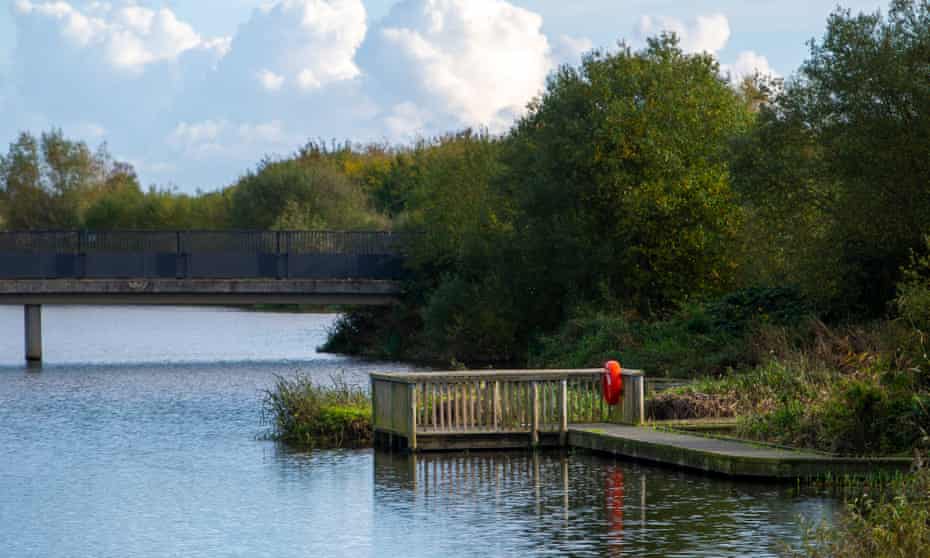MPs pass compromise to cut sewage dumping by water companies
Campaigners doubt amendment creates legal duty to stop releasing raw sewage into waterways

A government compromise aimed, ministers said, at cutting raw sewage dumping by water companies was passed by MPs on Monday after Conservative rebels backed ministers.
Campaigners for clean water said they were disappointed that what they viewed as a less stringent amendment had been approved. They said the government’s compromise was too weak and did not impose a legal duty on water companies to stop releasing raw sewage into waterways.
But Rebecca Pow, an environment minister, told MPs that the government’s amendment did place a clear legal duty on water companies to deliver improvements to storm overflows. She said the government had taken its wording from the Lords amendment, which was supported by 22 Tory rebels last week, to place a duty on water firms in England to progressively reduce sewage discharges from storm overflows.
Luke Pollard, the shadow environment secretary, said the bill as amended was not bold or tough enough. “Britain is again the dirty man of Europe. Not one English river is in a healthy state … People want to see fast and bolder action from ministers.”
Neil Parish, the Conservative MP for Tiverton and Honiton, who voted against the government last week, said it had his support on Monday.
But he warned: “We have to make sure that we apply lots of heat to water companies to make sure they put in the investment into curing the problem … and make sure the Environment Agency and Ofwat do use their teeth against these companies.”
Philip Dunne, Conservative MP for Ludlow, who also voted against the government previously, also supported ministers on Monday.
The government amendment passed on Monday states: “A sewerage undertaker whose area is wholly or mainly in England must secure a progressive reduction in the adverse impact of discharges from the undertaker’s storm overflows … reducing adverse impacts on the environment, and reducing adverse impacts on public health.”
Pow said this amounted to a clear legal duty. “I am aware of some wildly inaccurate claims which have been circulating online that we are somehow legalising the dumping of sewage. We are not.”
But campaigners said the amendment weakened the current law and in no way matched the so-called sewage amendment drawn up by the Duke of Wellington and passed in the Lords.
In 2020, water companies released raw sewage into rivers more than 400,000 times over a total of 3.1m hours. The release of raw sewage via storm overflows is legal in exceptional circumstances such as extreme rain, but figures show that in many cases such discharges are happening more routinely.
The government’s amendment passed by 283 to 163 on Monday.
Surfers Against Sewage said after the vote: “We’re hugely disappointed that the government has decided not to back the tougher Duke of Wellington amendment, which would have given them greater powers in tackling the sewage pollution emergency in our rivers and ocean.
“Just last week, UN secretary general, Antonio Guterres, warned world leaders at Cop26 to stop treating nature “like a toilet”. The government has failed to fully seize the opportunity in the most urgent of environmental decades to make an example of water companies to say, ‘If you pollute, you fix it, you pay.’
“Today is just one day in the fight to end sewage pollution. Until we see the evidence of action – fewer sewage discharges; our rivers passing ecological standards, our Bathing Waters at the top of league tables; and rivers fit to swim, we will not stay silent.”
Martin Salter, of the Angling Trust, said the wording of the government’s amendment was weaker than the Lords’ amendment and did not go far enough. “At a time when public trust in politicians has once again been shaken, we hope MPs will stand firm, and insist on clarity and action by ministers to create a pathway out of pollution.”
The Department for Environment, Food and Rural Affairs has defended the amendment. The government said: “The amount of sewage discharged by water companies into our rivers is unacceptable. We have made it crystal clear to water companies that they must significantly reduce sewage discharges from storm overflows as a priority.
“We have every confidence that the provisions in this bill will absolutely deliver progressive reductions in the harm caused by storm overflows, and any suggestion to the contrary is both disingenuous and untrue.”